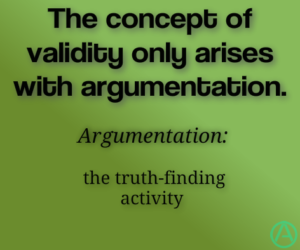It is often said by libertarians that libertarianism opposes coercion and that “ideas aren’t so great if they require force.” The problem with these two claims is that libertarianism doesn’t oppose coercion and ideas that need force aren’t always bad ideas. Libertarianism, i.e., the private property ethic, shows the initiation of uninvited force or threat thereof, i.e., aggression, to be unjustifiable. If an idea states that aggression is justifiable then it’s a bad idea, but just because an idea says force is justifiable doesn’t mean it’s bad.
What has been said about coercion can also be said about lying.
Before we analyze lying any further, we need to define lying. Per Frank van Dun:
A liar knows he is lying; he knowingly misrepresents the truth or what he believes to be the truth with the intention of preventing you from finding out the truth. Thus, the speaker would not be lying if he knowingly misrepresents the truth, not with the intention of deceiving [another] but with the intention, say, of entertaining [them] or even pulling [their] leg. [1]
In other words, lying is the action when the speaker “knowingly misrepresents the truth or what he believes to be the truth with the intention of preventing [another] from finding out the truth.”
Moreover, lying is argumentatively unjustifiable unless the other person(s) has lied to the speaker or is committing or has committed an aggression against the speaker or another innocent speaker. Argumentation is the interaction between two or more speakers where they exchange propositions and questions for the purpose of finding truth.
This cannot be argumentatively denied, i.e., denied, because if a speaker denies this definition then they would be engaging in an interaction with another speaker where they are exchanging propositions and possibly questions with the purpose of finding the truth, i.e., denying what argumentation is requires a performative contradiction. The speaker would be stating what they thought to be the truth.
One cannot justify in argumentation that one can “knowingly misrepresent the truth or what he believes to be the truth with the intention of preventing [another] from finding out the truth.” The ends of the two, argumentation and lying, are mutually exclusive.
Furthermore, a speaker could state the claim in argumentation without contradiction, “Lying to another person is justifiable if one has been lied to/if one has been aggressed/if one is being aggressed by that other person or if the other person is intent on lying to or aggressing another person.” A liar couldn’t consistently deny the claim that the person they lied to can justly lie to them, the liar. (This argument is borrowing from Stephan Kinsella’s Estoppel theory of rights.)
Citation:
1 – An email Frank van Dun sent to me.

Be First to Comment